1977
The Oldest Boomer is 31 years old.
Median Family Income: $13,570
Minimum Wage: $2.30/hr.
New Car: Toyota Corolla: $2,870
Buick Electra 225: $7,033
Ford Pinto Wagon: $4,075
Dodge Aspen: $4,515
Gallon of Gasoline: 65 cents
Movies: “Star Wars,” “Annie Hall,” “Close Encounters of the Third Kind,” “The Turning Point,” “The Goodbye Girl,” “Julia,” “Saturday Night Fever,” “Looking for Mr. Goodbar.”
TV: “CHiPs,” “Three’s Company,” “Black Sheep Squadron,” “The 700 club,” “Eight is Enough,” “James at 15,” “The New Mickey Mouse Club,” “What’s New, Mr. Magoo?”
The Love Boat,” “Eight is Enough,” “Tabitha,” “Lou Grant,” “Shields and Yarnell,” “The man From Atlantis.” “Roots” draws 130 million viewers 8 nights.
Music: “Saturday Night Fever,” Bee Gees. “Star Wars,” John Williams. Barbra Streisand, “Evergreen” the love theme from “A Star I Born” & “My Heart Belongs to Me.” Elvis Presley, “Way Down.” Donna Sumer, “I Fell Love.” Marvin Gay, “Got to Give It Up.” Julie Covington, “Don’t Cry for Me Argentina.” ABBA, “Knowing Me, Knowing You.” Mary MacGregor, “Torn Between Two Lovers.” Kenny Rogers, “Lucille.” Barry Manilow, “Looks Like We Made It.” The Eagles, “Hotel California.” Linda Ronstadt, “Blue Bayou.” Sex Pistols, “God Save the Queen.” Thin Lizzy, “Dancing in the Moonlight.” The Emotions, “Best Of My Love.” Rod Stewart, “I don’t Want to Talk About It, The First Cut Is The Deepest,” David Soul, “Don’t Give Up On Us.” The Manhattan Transfer,” Chanson D’Amour.” Shaun Cassidy, “Da Do Ron Ron.” Johnny Mathis, “When A Child I Born.” Hall & Oates, “Rich Girl,” Ted Nugent, “Cat Scratch Fever.” Kiss, “Christine Sixteen.” AC/DC, “Dirty Deeds Done Dirt Cheap.” Eric Clapton, “Lay down Sally.” Carly Simon, “Nobody Does It Better.” Ian Dury, “Sex & Drugs & Rock & Roll.” Queen, “Tie Your Mother Down, “Cheap Trick, “I Want You to Want Me.” Leo Sayer, “You Make Me Feel Like Dancing.” Wings, “Mull of Kintyre.” Andy Gibb, “I Just Want To Be Your Everything.” Fleetwood Mac, “Dreams.” Supertramp, “Give a Little Bit.” The Jacksons “Show You The way To Go.” Crstal Gayle, “Don’t It Make My Brown Eyes Blue.” Debby Boone, “You Light Up My Life.” Stevie Wonder, “Sir Duke.” Glen Campbell, “Southern Nights.” Manfred Mann’s Earth Band, “Blinded by the Light.” The Carpenters, “All You Get from Love Is a Love Song.” Rita Coolidge, “Your Love Has Lifted Me, Higher and Higher.”
1977 – Atari. Video Computer System game console. Atari introduces a programmable home video game system in a cartridge.
1977 – Andre Blay BEGINS RENTING VIDEOTAPES. Magnetic Video, OPERATING AS Video Club of America, is the first company to provide theatrical motion pictures on home video. Company founder Andre Blay convinced Twentieth Century-Fox to license 50 titles for sale directly to consumers. The cost of the license was $7.50 for each video sold, and Blay had to pay a $300,000 advance. Video Club of America marketed itself through a two-page ad in the November 26-December 2, 1977 edition of TV Guide and included both the Betamax and VHS formats of “Butch Cassidy And The Sundance Kid,” “Hello, Dolly!,” “M*A*S*H,” “Patton,” “The French Connection,” “The King And I,” and “The Sound Of Music.” Membership in the club is $10.00 and the price of the videos $49.95 each. They are for home use only and thirteen thousand people respond to the ad. Blay recoups his initial $300,000 investment in just two months.
October 1977 – -RCA begins selling the first VCR in the U.S. based on JVC’s “vertical helical scan” (VHS) system. Manufactured by Matsushita and branded as “Selecta Vision,” the VBT200 retails for $1,000.
October 1977 The Atari 2600 is released and becomes one of the most influential video game machines. It ships with a “joystick,” at a retail price of $249.
1977 – Nintendo begins to sell computer games.
December 1977 – George Atkinson launches the first video rental store, a 600 square foot storefront on Wilshire Boulevard in Los Angeles. Atkinson was the proprietor of Home Theater Systems, a company that rented Super 8 movies and projectors for parties. He bought on Betamax and one VHS copy of each of the Magnetic Video titles through a third-party for $3.00 over cost. Atkinson announced the availability of the Fox titles for rent in a one-column-inch ad in the December 7, 1977 Los Angeles Times. He had previously advertized “Video for Rent,: although he didn’t have any videos……..Atkinson was actually the first person to open a video rental store. Some believe that Arthur Morowitz, who started renting videos from a storefront in New York’s Times Square around the same time that Atkinson began renting videos, was the first.
From the book BOOMERS How We Changed The World by Richard A. Jordan
The Marx Brothers were an American family comedy act, originally from New York City, that enjoyed success in vaudeville, on Broadway, and in motion pictures from 1905 to 1949. Five of the Marx Brothers’ thirteen feature films were selected by the American Film Institute as among the top 100 comedy films, with two of them (Duck Soup and A Night at the Opera) in the top twelve.
From the 1940s onward Chico and Harpo appeared separately and together in nightclubs and casinos. Chico also fronted a big band, the Chico Marx Orchestra (with 17-year-old Mel Tormé as a vocalist). Groucho began his solo career with You Bet Your Life, which ran from 1947 to 1961 on NBC radio and television. He also authored several books, including Groucho and Me (1959), Memoirs of a Mangy Lover (1964) and The Groucho Letters (1967).
From Wikipedia, the free encyclopedia
ALL these years after the release of Cool Hand Luke in 1967, all you had to do is say, “What we have here is -failure to communicate.” Everyone knows the line, and everyone can identify the film, even those who may not have seen it. And her’s the curious part. As they make the connection, they’ll invariably smile, as if recalling a pleasant experience, a good time at the movies. Have you seen Cool Hand Luke lately? I have. Rarely has an important movie star suffered more, in a film wall-to-wall with physical punishment, psychological cruelty, hopelessness and equal parts of sadism and masochism.
It is a great film. On that most of us can agree. But such a film could not possibly be made in more recent decades, not one starring Brad Pitt or Tom Cruise or other actors comparable to Paul Newman’s stature. It is simply too painful. I can imagine a voice at a studio pitch meeting: “Nobody wants to see that.”
From the book Great Movies III by Roger Ebert
A great read, real cool book.
I had been working for almost a year on a movie called Shaft. The screenplay was based on a novel of the same name written by Ernest Tidyman. Originally planned as a run-of-the mill detective film with a White hero, it was rewritten to feature a Black private eye, John Shaft. I had spent weeks with Dave Golden, the assistant director in charge of production, researching locations in and around New York City, and the script was rewritten to include the locations. I asked Joel Freeman and old acquaintance from my Warner Brothers days, to be the producer. The plot of the movie has Shaft first battling, the joining up with, Bumpy Johnson, the leader a Black crime mob, to fight the White Mafia. The Mafia has kidnapped Bump’s daughter in an attempt to blackmail Bumpy. I chose Richard Roudtree, a big good-looking young man, to play Shaft. It was his first major role. I picked Moses Gunn, and experienced Black actor, to play Bumpy. We spent weeks auditioning actors for the other forty-odd parts, most of them for Blacks. One of the parts was played by Muhammad Ali’s trainer, Bundini. I took a bit as a hotel keeper. After six months of hard work, Shaft was all set to shoot. Then Joel came in looking grim. “West Coast just called. Now don’t drop dead, but they want us to close down the office and fire everybody except Roundtree. They want to shoot the film out there.” I felt the blood draining from my head. “You’re kidding.” “Nope, ain’t kidding. I didn’t even get a chance to ask questions. So, Mr. Director, what do we do?”What I did was get on a plane to Los Angeles. There, during a tense meeting with the MGM management, I learned their reason for wanting to move the production to the West Coast. “Winter’s coming to New York, Mr. Parks. That means trouble for the filming and the studio’s going to lose a ton of money.” I declared myself. “Shooting the film here will amount to just another television show. Sorry. You’ll have to do it in New York or find another director.” I went back to my office to prepare for the flight back to New York. Thirty minutes later the word came: “You’ve got it, man.
We came in on time and on budget, which was $1,240,000…..I went out to California for the editing and scoring. Isaac Hayes composed the whole score in six weeks and recorded it in a day. I will never forget the first time we met. He arrived at my apartment in a full-length mink coat, his bald head covered with a sort of mink toque He carried a small tape recorder in his hand to play just the tempo of the title song. It was brilliant. Later, in Los Angeles, someone mentioned that it would be eligible for an Academy Award if the song had words. The next morning Isaac came in with the lyrics written on the back of an envelope. His song did, indeed, win an Academy Award the next year.
Shaft opened on July 2, 1971, to lines around the block and audiences who stood up screaming at its conclusion. It was a particular hit with young Blacks who, for the first time, had a Black hero to identify with. One reviewer called Shaft “the ultimate in suave Black detectives.”
from the book A HUNGRY HEART (A Memoir) Gordon Parks
This book is super fly.
AMERICAN GRAFFITI
Directed by George Lucas
With Richard Dreyfuss (Curt). Ronny Howard (Steve(. Paul le Mat (John). Chrlie Martin smith (Terrt). Cindy Williams (Laurie). Candy Clark (Debbie). Mackenzie Philips (Carol). Wolfman Jack ( Disc Jockey) and Harrison Ford (Bob Falfa)
Elsewhere, the big screen was beckoning –well, after a fashion. Comics John Belushi and Dan Aykroyd had been working up their “Blues Brothers” R & B pastiche as part of the top-ranking Saturday Night Live TV show and in cahoots with director John Landis, were in the process of parlaying a series of TV skits into a feature-length movie. They’d already roped in Aretha Franklin, Ray Charles, Cab Calloway and James Brown when John Lee Hooker came on board. “John (Belushi) and his partner Dan Aykroyd was really into the blues,” says Hooker. “This woman who was managing me then, Sandy Getz, she contacted them, and I knowed ’em pretty good.” According to a story in Rolling Stone, they had first met when Hooker was playing at the Lone Star. Belushi star of Saturday Night Live, knew the club’s owner, Mort Cooperman, and asked him to arrange a meeting. The story goes that when Hooker- not usually to be found in front of a TV screen on Saturday evening-first responded “Who?” when told “John Belushi,: as if he hadn’t heard correctly. He then lifted his shades to get a better look and said, “You one of them Muppets?” In the movie, Hooker appears as “Street Slim,” immaculate in tan leather jacket and dashingly scarved white safari hat, performing “Boom Boom” on Maxwell Street with various members of Muddy Waters’ band as Belushi and Aykroyd track down Matt Murphy at Aretha Franklin’s . ghetto diner, the Soul Food Cafe. “At that time {being in the movie} helped my career. More people had seen me. They still show that. It sells really well. They got a cassette of that, a video. It was shown all over the world, so that was good publicity for me. I knowed all those people, too.”
From the book Boogie Man by Charles Shaar Murray
Don’t you just love it. That’s the way whole book goes Eye opening fun. Real cool.
Gene Hackman was producer Sherwood Schwartz’s first choice in 1969 to play the role of Mike Brady on The Brady Bunch, but Paramount executives said no. Gene Hackman starred in The French Connection the following year and won the Academy Award for Best Actor. He also starred in the Conversation, The Poseidon Adventure., Mississippi Burning, Hoosiers, and Unforgiven.
 oldschoolgoldenyears.com
oldschoolgoldenyears.com
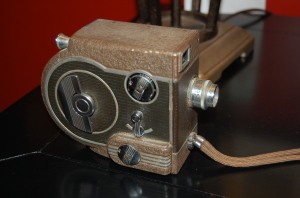


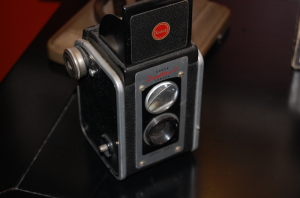




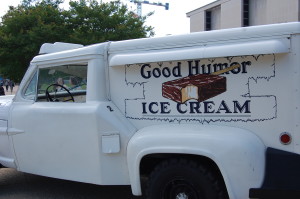
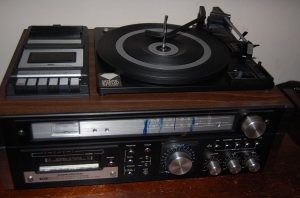


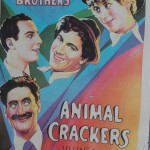 Great movies for great times.
Great movies for great times.

